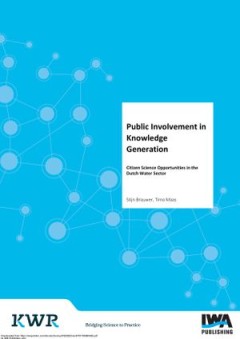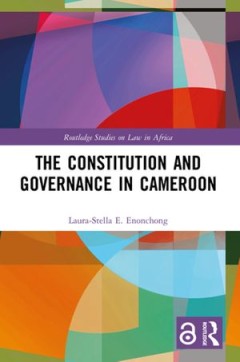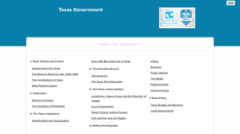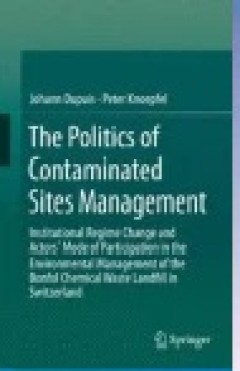Filter by

Advancing Equality : How Constitutional Rights Can Make a Difference Worldwide
In a world where basic human rights are under attack and discrimination is widespread, Advancing Equality reminds us of the critical role of constitutions in creating and protecting equal rights. Combining a comparative analysis of equal rights in the constitutions of all 193 United Nations member countries with inspiring stories of activism and powerful court cases from around the globe, the b…
- Edition
- -
- ISBN/ISSN
- 9780520973879
- Collation
- -
- Series Title
- -
- Call Number
- 320 HEY a

Justice and Human Rights in the African Imagination : We, Too, Are Humans
Justice and Human Rights in the African Imagination is an interdisciplinary reading of justice in literary texts and memoirs, films, and social anthropological texts in postcolonial Africa. Inspired by Nelson Mandela and South Africa’s robust achievements in human rights, this book argues that the notion of restorative justice is integral to the proper functioning of participatory democrac…
- Edition
- -
- ISBN/ISSN
- 9780367708542
- Collation
- -
- Series Title
- -
- Call Number
- 340 EZE j

Public Involvement in Knowledge Generation : Citizen Science Opportunities in…
Public Involvement in Knowledge Generation is an Open Access co-publication with KWR.
- Edition
- -
- ISBN/ISSN
- 9781789060492
- Collation
- -
- Series Title
- -
- Call Number
- 320 BRO p

The Constitution and Governance in Cameroon
This book provides a systematic analysis of the major structural and institutional governance mechanisms in Cameroon, critically analysing the constitutional and legislative texts on Cameroon’s semi-presidential system, the electoral system, the legislature, the judiciary, the Constitutional Council and the National Commission on Human Rights and Freedoms. The author offers an assessment of t…
- Edition
- -
- ISBN/ISSN
- 1351028855
- Collation
- -
- Series Title
- -
- Call Number
- 320 ENO c

Law, Liberty, and the Pursuit of Terrorism
It is commonly believed that a state facing a terrorist threat responds with severe legislation that compromises civil liberties in favour of national security. Roger Douglas compares responses to terrorism by five liberal democracies— the United States, the United Kingdom, Canada, Australia, and New Zealand— over the past 15 years. He examines each nation's development and implementation o…
- Edition
- -
- ISBN/ISSN
- 9780472029662
- Collation
- -
- Series Title
- -
- Call Number
- 340 DOU l

Texas Government
A textbook written by Dr. Daniel Regalado (Professor of Government and History at Odessa College), along with some sources from OpenStax material, for GOVT 2306: Texas Government. Source was written in Fall 2017.
- Edition
- -
- ISBN/ISSN
- -
- Collation
- -
- Series Title
- -
- Call Number
- 350 REG t

The International Criminal Court and the End of Impunity in Kenya
The period immediately following Kenya's 2007 presidential election left a shocking trail of atrocities, with over 1,000 people dead and countless thousands left victimised and displaced. In response, the International Criminal Court began a series of investigations and trials, promising no impunity for even the highest ranking perpetrators. When the country's president and vice-president were …
- Edition
- 1
- ISBN/ISSN
- 978-3-319-10729-5
- Collation
- XV, 267, 6 illustrations in colour
- Series Title
- Springer Series in Transitional Justice
- Call Number
- -

The Humanitarian Challenge
This book includes contributions from academics, practitioners and policy-makers connected with the Network on Humanitarian Action (NOHA), an international association of universities that is committed to interdisciplinary education and research on humanitarian action. Celebrating the twentieth anniversary of NOHA, this book highlights some of the most pressing issues and challenges facing hum…
- Edition
- 1
- ISBN/ISSN
- 978-3-319-13470-3
- Collation
- XII, 286,2 illustrations in colour
- Series Title
- The Humanitarian Challenge
- Call Number
- -

Politics, Power, and Purpose : An Orientation to Political Science
This textbook is intended to orient students to the study of politics and the discipline of political science. By the end of this course, students will gain comprehensive understanding of political behavior, political institutions, and normative ideas of political theory.
- Edition
- -
- ISBN/ISSN
- -
- Collation
- -
- Series Title
- -
- Call Number
- 320 STE p

The Politics of Contaminated Sites Management
In the opening chapter, the authors describe the influences of politics and the power relationships between actors involved in decision-making in contaminated sites management, which they term a “wicked problem.” Chapter Two offers a theoretical framework for understanding institutions and the environmental management of contaminated sites. The next five chapters present a detailed case stu…
- Edition
- -
- ISBN/ISSN
- 978-3-319-11307-4
- Collation
- XIX, 159
- Series Title
- -
- Call Number
- -
 Computer Science, Information & General Works
Computer Science, Information & General Works  Philosophy & Psychology
Philosophy & Psychology  Religion
Religion  Social Sciences
Social Sciences  Language
Language  Pure Science
Pure Science  Applied Sciences
Applied Sciences  Art & Recreation
Art & Recreation  Literature
Literature  History & Geography
History & Geography